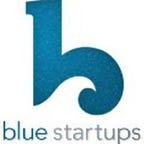Indigenous Innovation: How Culture Inspires Invention
By Tiffany Hill
Honoring the past, while innovating for the future. That’s the advice Ian Musson gives to the Māori entrepreneurs who participate in Kōkiri,1 the inaugural accelerator in New Zealand he founded that’s dedicated to the development of Māori-led startups.
“History demonstrates and suggests, along with a lot of other indigenous cultures, that Māori are entrepreneurs by nature,” says Musson. “(Our people) traveled across mighty seas, found unknown lands and then set up and thrived … It’s in our blood. Our ancestors have lived and breathed this and we’ve got a responsibility to continue that notion of how can we challenge that status quo? How can we change the world?”
This innovation can take place right here in our backyard, adds Stacy Ferreira, the executive strategy consultant at Kamehameha Schools.2 “We can create the solutions for many of the problems our world is facing today,” she says. “Be bold, courageous, respectful and mindful like our kūpuna.”
Musson and Ferreira will discuss indigenous culture and the ways in which it inspires invention and innovation at this year’s East Meets West,3 Hawaii’s premier startup event put on by Blue Startups, the Honolulu-based venture accelerator.
Living and working in Aotearoa — New Zealand — and Hawaiʻi respectively, Musson and Ferreira say their background and identity has helped strengthen the work they do. As a Māori, Musson says he was motivated to found Kōkiri in 2017 to help other indigenous peoples achieve their versions of success in the New Zealand startup community. “We built a startup that is reflective of the audience we want to serve to ensure the best outcomes for them,” he says.
As a Native Hawaiian, and working in an education institution for Native Hawaiians, Ferreira says her culture gives her a solid foundation. “My worldview is grounded in the values, practices and protocols of my kūpuna, shapes my intentions and interactions and guides me in my daily kuleana.”
The two also say their culture has inspired innovation. Both island communities have strong ties to place, which is evident in the technology being created and the ways in which it benefits users. “Disruptive technology is allowing indigenous people to share what they’ve done for ages to a much a broader, wider audience,” says Musson.
In 2018, Kōkiri worked with Arataki,4 a storytelling app, which uses bluetooth and GPS mapping, to provide users with Māori history, culture and traditions when they’re in specific locations through the country. “What technology has allowed them to do is make it an immersive experience for people,” he says. “When you get people in these spaces, there’s something special about being there.”
Ferreira adds that Native Hawaiian culture has long inspired technology at Kamehameha Schools. For example, the school hosts an annual technology conference for Hawaiʻi educators. And in 2017, the institution opened Hālau ‘Īnana5 in partnership with UH Mānoa and Chaminade University. The center is an education space ground in the Hawaiian worldview and geared to cultivate the new generation of indigenous innovators and entrepreneurs.
— — — —
For more information on how indigenous culture inspires invention and much more, attend this year’s East Meets West event from January 31 to February 1. More than 30 people speak at East Meets West, including venture capitalists, startup co-founders and CEOs of accelerators, photo editing apps, email delivery platforms, vacation booking sites and more. They hail from Hawaii, the U.S., China, Taiwan, Japan, Korea, Singapore and New Zealand and many do cross-border business.
URLs
1https://ian-musson-k2f4.squarespace.com/
2https://www.ksbe.edu/
